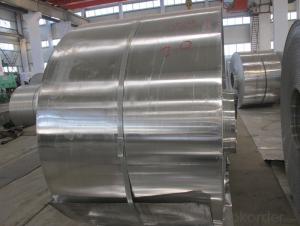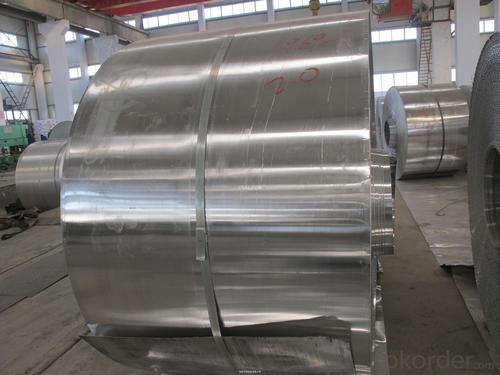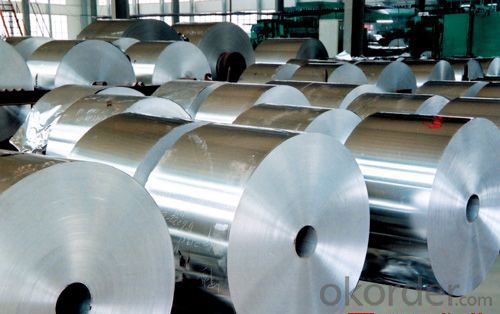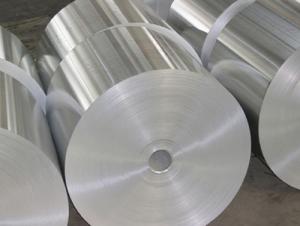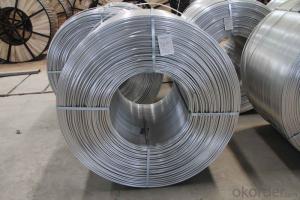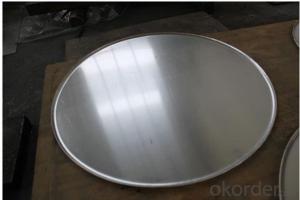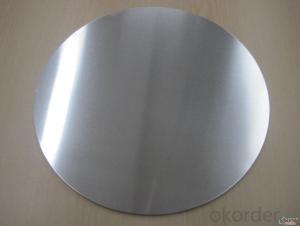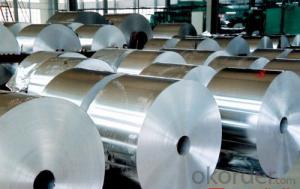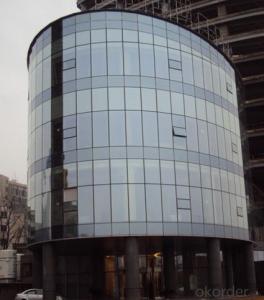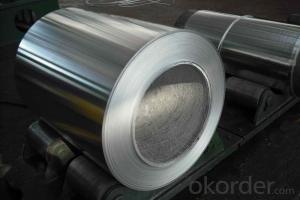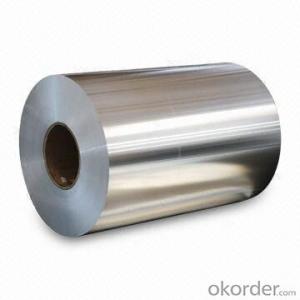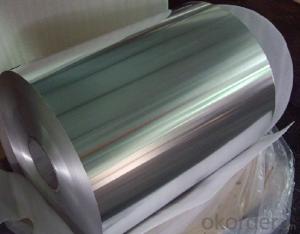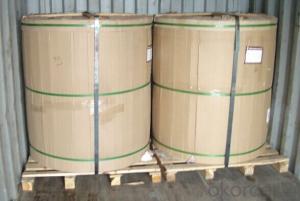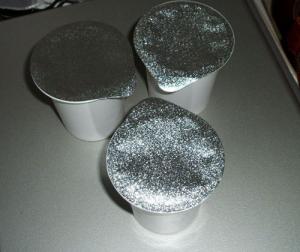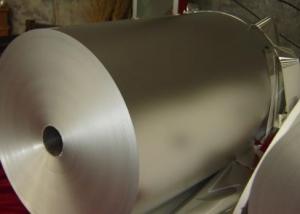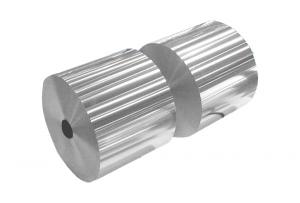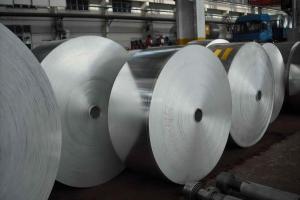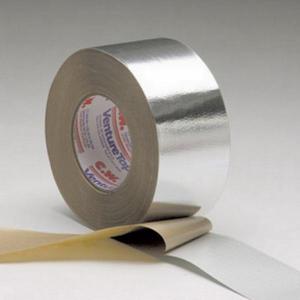Aluminum Cold Rolled Coils and Sheets for Gutter
- Loading Port:
- Shanghai
- Payment Terms:
- TT OR LC
- Min Order Qty:
- 5 m.t.
- Supply Capability:
- 100000 m.t./month
OKorder Service Pledge
OKorder Financial Service
You Might Also Like
Specification
Specifications
Coated Aluminium coil for gutter
1)Steady&consistent quality
2)Good product durability
Coated Aluminium coil for gutter
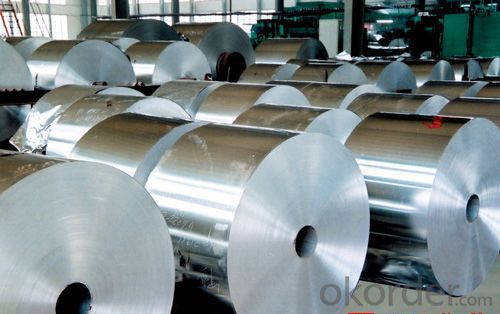
We are a professional team and integrated with R & D, manufacturing, import and export trading.
CNBM Group has 5 subsidiary factories, main products are Coated Aluminum Coil, Roll Forming Machine, Metal & PVC Building Material Machine.
After 14 years of production of export products experience, CNBM Group has a high-quality, comprehensive production management, quality control team, and pass the ISO9001: 2000 Certification. We sincerely welcome various clients to visit our CNBM Group, it is our honor to supply you with our service. We sincerely wish our cooperation will be Good luck and prosperous.
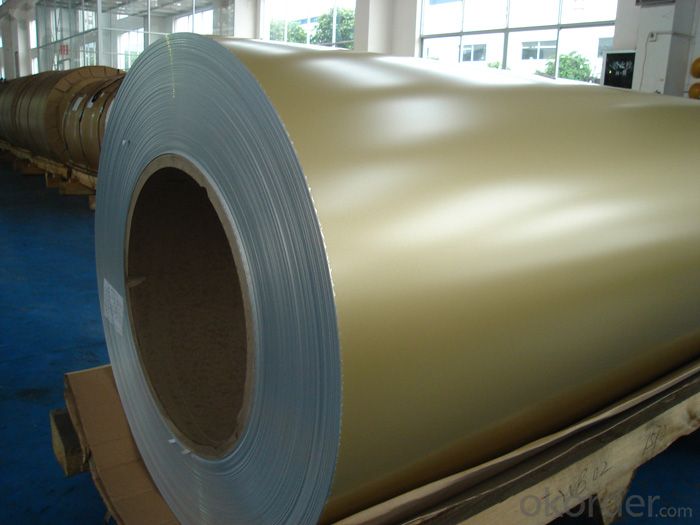
Detailed Product Description
Coated Aluminium Coil:
We can offer various kinds of coated aluminum coils.Applications: Used to manufacture decorative material, such as aluminium composite panel, brushed panel, lampshade, and other composite panels.
1) Exterior applications such as: wall cladding, facades, roofs and canopies, tunnels, column covers or renovations
2) Interior applications such as: wall cladding, ceilings, bathrooms, kitchens and balconies
3) Advertisement and market applications such as: display platforms, signboards, fascias and shop fronts
4) Transport and industry applicationsWe can coat the coils according to RAL color and Pantone color as well as other color samples.
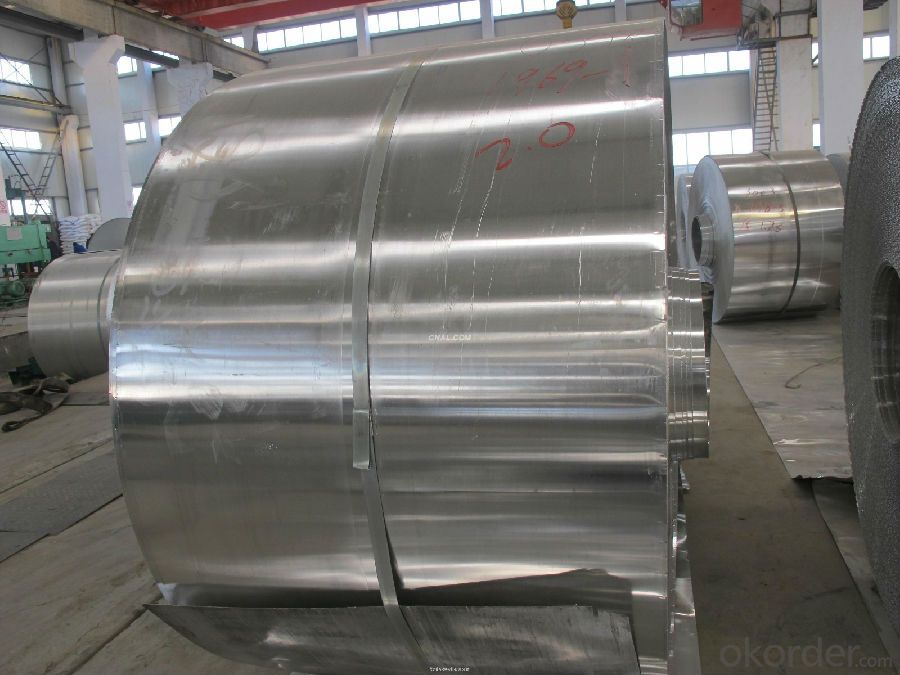
- Q: This question asks for the common uses of aluminum in everyday life.
- <p>Aluminum is widely used in daily life due to its lightweight, corrosion resistance, and affordability. It's found in beverage cans, food packaging, and cookware. Aluminum is also used in construction for window frames, doors, and roofing. In transportation, it's utilized in the manufacturing of vehicles, aircraft, and ships due to its strength-to-weight ratio. Additionally, it's present in electronic devices, such as smartphones and laptops, for casings and heat sinks. Other applications include electrical wiring, sports equipment, and everyday items like foil and aluminum foil containers.</p>
- Q: This question asks for an enumeration of different types of aluminum alloys.
- <p>Aluminum alloys are categorized based on their primary alloying elements and their applications. Some common types include: 1) 1000 series (99% pure aluminum), 2) 2000 series (alloyed with copper), 3) 3000 series (alloyed with manganese), 4) 4000 series (alloyed with silicon), 5) 5000 series (alloyed with magnesium), 6) 6000 series (alloyed with magnesium and silicon), and 7) 7000 series (alloyed with zinc). These alloys have various properties, making them suitable for different industries such as aerospace, automotive, and construction.</p>
- Q: What other materials can be used as substitutes for aluminum in various applications?
- <p>Alternative materials to aluminum include magnesium, which is lighter and often used in automotive and aerospace applications; titanium, known for its strength and corrosion resistance, though more expensive; copper, utilized for its excellent electrical conductivity; and steel, which is stronger and more durable but heavier. Additionally, composite materials like carbon fiber and fiberglass offer weight savings and high strength, though they can be more complex to manufacture. Each alternative has its own set of advantages and disadvantages depending on the specific application and requirements.</p>
- Q: This question asks whether it is safe to use aluminum cookware for pregnant women or individuals with health conditions.
- <p>While aluminum cookware is generally safe for most people, there are concerns about its potential health effects. Aluminum has been linked to cognitive issues and Alzheimer's disease, although the evidence is not conclusive. For pregnant women and those with health conditions, it is advisable to err on the side of caution. Opt for cookware made from stainless steel, cast iron, or non-stick materials without aluminum. If you must use aluminum cookware, avoid acidic or alkaline foods and ensure the cookware is not scratched, as this can increase aluminum leaching into food.</p>
- Q: Can aluminum recycling be done in a closed loop system where the material can be reused indefinitely without loss of quality?
- <p>Yes, aluminum can be recycled in a closed loop system. Aluminum is one of the most recycled materials due to its ability to be recycled indefinitely without losing quality. When aluminum is recycled, it retains its properties, making it suitable for reuse in new products. The closed-loop recycling process involves collecting used aluminum products, melting them down, and then using the recycled material to manufacture new aluminum products. This process can be repeated over and over again, making aluminum recycling highly efficient and environmentally friendly.</p>
- Q: What precautions should be taken when handling or working with aluminum?
- <p>When working with aluminum, several safety measures should be taken: Wear appropriate personal protective equipment (PPE) such as gloves, safety glasses, and a dust mask to prevent inhalation of aluminum dust. Ensure proper ventilation to avoid the buildup of dust or fumes. Use tools and equipment designed for aluminum to prevent sparks or heat buildup, which can cause fires. Store aluminum in a dry place to prevent corrosion. Always follow the manufacturer's guidelines for handling and processing aluminum, and be aware of the specific hazards associated with the aluminum products you are working with.</p>
- Q: Is it possible to utilize aluminum in the manufacturing of tools and equipment?
- <p>Yes, aluminum can be used to make tools and equipment. It is valued for its lightweight, corrosion resistance, and high strength-to-weight ratio. Aluminum is commonly used in various applications such as aircraft manufacturing, automotive parts, and consumer electronics. It is also used in the construction of certain types of tools, particularly those that require lightness and durability without the need for extreme strength. However, for applications requiring high strength or resistance to high temperatures, other materials might be more suitable.</p>
- Q: This question asks for examples of how recycled aluminum can be utilized.
- <p>Recycled aluminum has numerous applications, including the manufacturing of beverage cans, automotive parts, construction materials, and electronic components. It is also used in the production of aluminum foil, packaging materials, and various household items. Recycled aluminum is valued for its durability, lightweight properties, and energy efficiency in production, making it an environmentally friendly choice for many industries.</p>
- Q: Describe the steps involved in recycling aluminum foil, including collection, sorting, processing, and manufacturing.
- <p>The process of recycling aluminum foil begins with collection, where used foil is gathered from households and businesses. It is then sorted to separate aluminum from other materials. The aluminum foil is shredded into small pieces and cleaned to remove any contaminants. This shredded material is melted in a furnace at high temperatures, turning it into molten aluminum. The molten aluminum is then cooled and rolled into sheets or ingots. Finally, these are used to manufacture new aluminum products, such as new foil, cans, or other items. This recycling process conserves resources, reduces energy consumption, and minimizes waste in landfills.</p>
- Q: This question asks for the specific temperature at which pure aluminum transitions from solid to liquid state.
- <p>The melting point of pure aluminum is approximately 660.32 degrees Celsius (1220.58 degrees Fahrenheit). This is the temperature at which aluminum changes from a solid to a liquid state under standard atmospheric pressure. The melting point is an important physical property of metals and is crucial in various industrial applications, such as casting and welding.</p>
Send your message to us
Aluminum Cold Rolled Coils and Sheets for Gutter
- Loading Port:
- Shanghai
- Payment Terms:
- TT OR LC
- Min Order Qty:
- 5 m.t.
- Supply Capability:
- 100000 m.t./month
OKorder Service Pledge
OKorder Financial Service
Similar products
Hot products
Hot Searches
Related keywords
